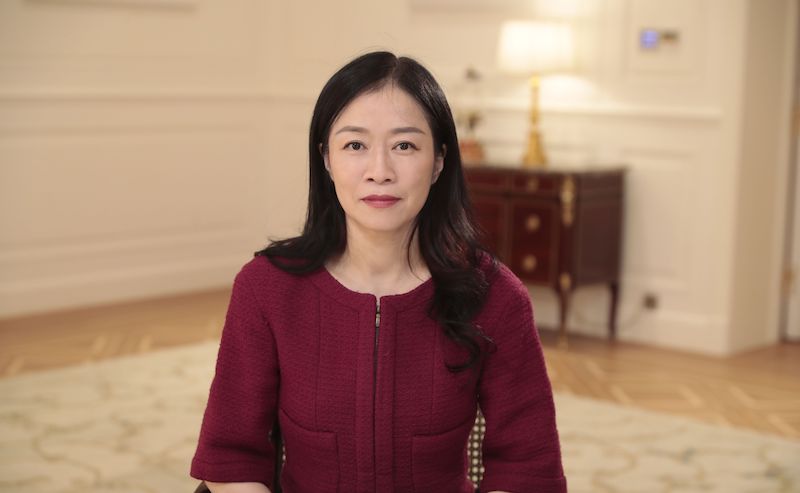At the Connected for Shared Prosperity Forum, co-sponsored by the Global Mobile Association’s (GSMA) at the ongoing Mobile World Congress Shanghai 2021, Huawei Senior Vice President and Board Member Chen Lifang reiterated her support of the UN’s sustainable development goals and building a green, innovative and inclusive world while citing some challenges in order to achieve these objectives.
Participants in the forum joined both online and in-person to discuss the value of digital technologies in sustainable development for a better, connected world, representing organizations from around the world, including international industry regulators and think tanks from China, Malaysia, Spain, Thailand, Hungary, and Portugal.
I am one of more than 1,000 guests from over 50 countries who attended the conference online.

“We’ve all had mixed feelings about 2020. The pandemic has changed our lives. Many things we took for granted no longer exist and our values have changed. My biggest takeaway from the past year has been just how hard it is for society to reach a consensus. There seems to be constant conflict and disagreement, from deciding if it’s necessary to impose lockdowns to debating if it’s worth it to wear a mask,” according to the Huawei executive in her speech at the forum.
She continued with, “Today, we’ve come together to discuss the United Nations’ 17 Sustainable Development Goals. I, personally, believe that technology is crucial to advancing these goals, and together, we must do two things to fully unleash the power of technology and drive sustainable development.”
Challenge #1: Reach an Honest Consensus on Whether Technology is an Engine of Human Progress
Chen looked back over history citing how large social changes happen in lockstep with breakthroughs in science and technology. According to the Huawei executive, today’s technological advancements are hyped and politicized, sometimes demonized as many have stopped believing in the power of technology due to fear and distrust.
She even cited a report that she read that said any important digital platform that is dominated by China will be highly dangerous to the US if not effectively contained and that 5G was one such platform.
“5G is a standardized technology defined by its high bandwidth, low latency, and broad connectivity. It helps traditional industries transform and can benefit all. Wide-scale 5G deployment can already be seen in multiple industries around the world. Every-day consumers are benefiting from 5G experiences, while industrial use in seaports, mines, and the transportation sector is increasing operational efficiency. Is this a bad thing? I don’t think so,” added Chen.
The Huawei officer suggested that a global consensus on this issue must be reached and believe in the power of technology to leverage it for the benefit of society.
Challenge #2: Taking Resolute Action to Make Technology Truly effective & Create Value for All
Huawei Senior Vice President and Board Member Chen Lifang admits that it may be hard to reach a consensus, but it is easy to shut down technology. She explains that for enterprises, believing in tech can start from something small — looking at the Minimum Viable Product (MVP) concept, as an example. An MVP can then be constantly iterated and refined after its launch.
“Building broad consensus is difficult, so we can draw on this MVP concept to help technological advancement continue. By focusing on the limited common understanding we have right now and by keeping in mind what resources are actually available, we can drive progress step by step. Iteration means perfect. Fostering conflict will mean stagnation,” according to Chen.
She stressed that Huawei has always supported technological advancement, believing, ultimately, tech benefits humanity. She also said that Huawei believes digital tech will help the UN achieve its SDGs as the company has explored many applications of digital tech guided by the SDGs.
“Huawei’s Smart PV solution is being widely used in more than 60 countries to reduce carbon emissions by 148 million tons. This is the equivalent of planting more than 200 million trees. In Ethiopia alone, we have helped our customers deploy over 400 solar power stations, reducing carbon emissions by 2,850 tons. In China, we have also helped build the world’s largest solar stations dedicated to agriculture and fishing in Ningxia and Shandong provinces.
What’s more, Huawei and UNESCO launched the Open Schools program over the course of a three-year partnership, to help schools in Egypt, Ethiopia, and Ghana improve their digital skills with online education,” Chen continued in her speech.


